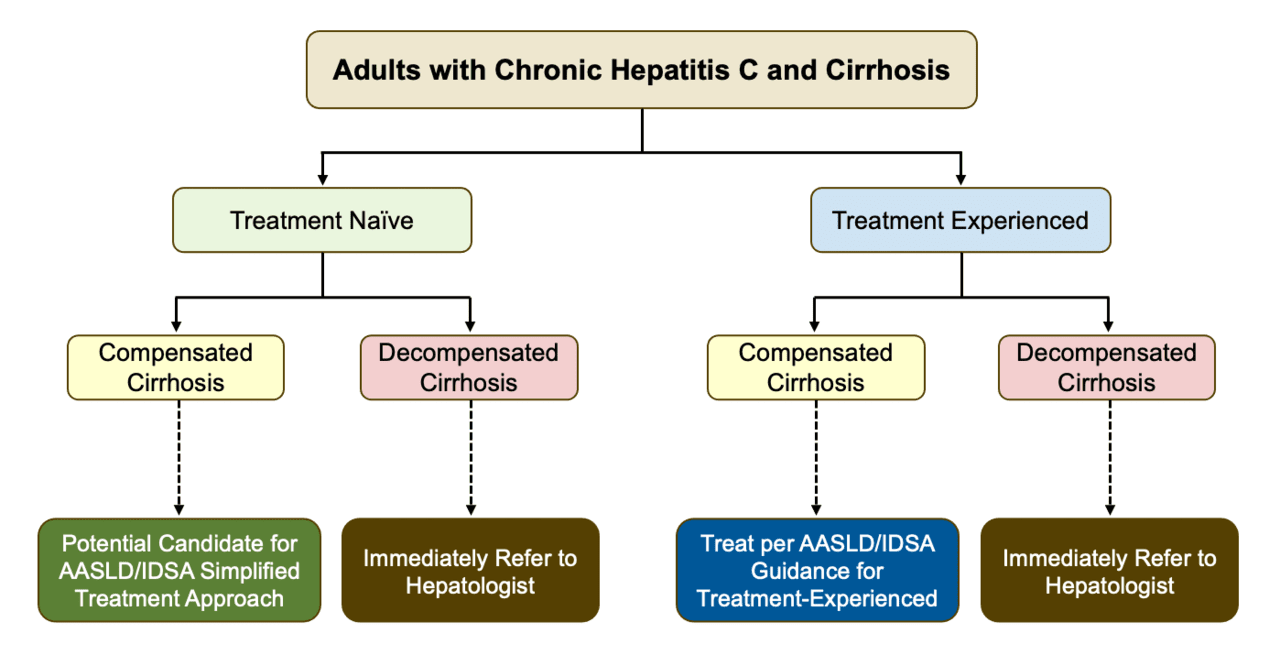Effective hepatitis C medications primarily include direct-acting antivirals (DAAs) like sofosbuvir, ledipasvir, & velpatasvir, which target specific stages of the virus lifecycle. These treatments can achieve over 95% cure rates with shorter durations of therapy, typically ranging from eight to twelve weeks. It’s crucial to complete the full treatment course as prescribed & follow up with regular monitoring. Knowing individual genotype & viral load can help tailor treatment for optimal results. Early detection & adherence to medication significantly enhance success rates, improving overall liver health & quality of life.
Effective Hepatitis C Medications: What You Need to Know for Successful Treatment. Discover the best Hepatitis C medications for effective treatment. Learn what you need to know for a successful recovery without the confusion!

Overview of Hepatitis C
Hepatitis C is a viral infection impacting the liver. It can lead to serious health issues. Many people do not know they have it. The virus spreads through blood contact. This includes sharing needles or other drug-use equipment. Hepatitis C can be acute or chronic. Acute Hepatitis C occurs in the first six months after exposure. Chronic infection lasts more than six months.
Chronic Hepatitis C can cause liver fibrosis, cirrhosis, or liver cancer. Many people with Hepatitis C remain asymptomatic for years. Symptoms, if they occur, can include:
- Fatigue
- Nausea
- Joint pain
- Loss of appetite
Diagnosis requires blood tests to identify the virus & the extent of liver damage. Early detection & treatment are crucial for preventing severe liver disease.
Hepatitis C Medications: An Overview
Several medications treat Hepatitis C. The main goal is to eliminate the virus from the body. This is known as a sustained virologic response (SVR). Achieving SVR means the virus is undetectable in the blood for at least 12 weeks after treatment.
The main classes of medications for Hepatitis C include:
- Direct-acting antivirals (DAAs)
- Interferon
- Ribavirin
This post will focus on DAAs as they are the most common & effective treatment.
Direct-Acting Antivirals (DAAs)
DAAs are innovative medications that target specific steps in the Hepatitis C virus lifecycle. They block the virus from multiplying in the body. DAAs have a higher cure rate & often come with fewer side effects.
Common DAAs include:
- Sofosbuvir
- Daclatasvir
- Velpatasvir
- Glecaprevir
- Pibrentasvir
DAAs are taken orally. Treatment durations usually range from eight to twelve weeks. In some cases, they combine different DAAs for a more effective treatment.
Benefits of DAAs
DAAs are revolutionizing the treatment of Hepatitis C. The benefits include:
- Higher cure rates
- Fewer side effects
- Shorter treatment duration
Patients report feeling better shortly after starting DAAs. This quick improvement leads to better treatment adherence. Studies show more than 95% of patients achieve SVR.
Risks & Side Effects of DAAs
While DAAs are effective, some side effects may occur. Common side effects include:
- Fatigue
- Headaches
- Nausea
Most side effects are mild. Rare cases may experience more severe reactions. Regular monitoring during treatment helps manage these side effects. Always consult with your healthcare provider for personalized guidance.
Combination Therapy
Combination therapy involves using two or more medications to treat Hepatitis C. This approach increases the chance of curing the infection. The combinations often include a DAA with ribavirin or interferon.
Combination therapy is beneficial for specific patient groups. This includes those with:
- Higher viral loads
- Previous treatment failures
- Cirrhosis
Doctors will assess patients to determine the best combination. Regular follow-ups monitor treatment effectiveness & liver health.
Benefits of Combination Therapy
Combination therapy helps in several ways:
- Increases the likelihood of SVR
- Targets multiple virus strains
- Provides options for treatment-resistant infections
These benefits make combination therapy a crucial component in treating challenging cases of Hepatitis C.
Risks & Side Effects of Combination Therapy
Although combination therapy can be effective, it may also increase side effects. Possible side effects include:
- Anemia
- Fatigue
- Flu-like symptoms
Patients need close monitoring during treatment. Adjustments to the treatment plan may be necessary to ensure patient safety & comfort.
Managing Treatment Outcomes
Consider the following tips for managing health after Hepatitis C treatment:
- Eat a balanced diet
- Exercise regularly
- Avoid alcohol
- Take prescribed medications as directed
These habits help lower the risk of liver disease & improve wellness.
Emerging Treatments in Hepatitis C
New treatments for Hepatitis C are continually being researched. These emerging therapies aim to enhance patient outcomes. Some focus on different virus targets. Others may involve newer drug combinations.
Ongoing clinical trials are crucial in this research phase. Patients may have opportunities to participate in these trials. This could provide access to innovative therapies before public availability. Research will continue to shape future Hepatitis C treatments.
Potential New Medications
Several new medications show promise for treating Hepatitis C:
- Ciluprevir
- Entecavir
- Bristol-Myers Squibb’s treatments
These options may offer solutions to patients who are resistant to current therapies. The healthcare community watches these developments closely.
Improving Access to Treatments
Access to Hepatitis C medications is critical. Many organizations work to increase availability. Insurance coverage for treatment varies. Access can sometimes be a barrier for patients.
Patients should discuss options with healthcare providers. Resources are available to help with the cost of medications. Programs may assist in accessing treatments. As awareness grows, more patients receive necessary care.
The Role of Support Networks
Support plays a vital role in successfully managing Hepatitis C treatment. Support networks provide education, encouragement, & shared experiences. Connecting with others reduces feelings of isolation.
Patients can find support through local organizations or online forums. These platforms offer resources & information. They also allow individuals to share their experiences.
Signs of a good support group include:
- Access to professional advice
- Opportunities for open discussion
- Resources for emotional support
A strong support network can enhance motivation & adherence to treatment plans.
Highlighting Mental Health Importance
Managing the emotional aspects of a Hepatitis C diagnosis is crucial. Anxiety & depression can influence treatment success. Patients should prioritize their mental health.
Therapy, mindfulness, & relaxation techniques can support emotional well-being. Seek professional help if managing feelings becomes overwhelming. Many resources available provide vital mental health support.

| Specification | Medication A | Medication B | Medication C | Medication D |
|---|---|---|---|---|
| Active Ingredients | Ingredient 1, Ingredient 2 | Ingredient 3, Ingredient 4 | Ingredient 5, Ingredient 6 | Ingredient 7, Ingredient 8 |
| Dosage Form | Oral tablet | Injectable | Oral tablet | Oral tablet |
| Recommended Dosage | 1 tablet daily | 1 injection every 4 weeks | 2 tablets daily | 1 tablet daily |
| Duration of Treatment | 12 weeks | 24 weeks | 8 weeks | 12 weeks |
| Effectiveness Rate | 95% | 90% | 98% | 92% |
| Side Effects | Nausea, fatigue | Injection site reactions | Headache, insomnia | Dizziness, diarrhea |
| Drug Interactions | None | Anticoagulants | Antifungals | Antidepressants |
| Contraindications | Liver failure | Severe allergic reactions | Kidney disease | Heart disease |
| Warnings | Monitor liver enzymes | Risk of severe infections | Monitor kidney function | Risk of allergic reactions |
| Pregnancy Category | Category C | Category X | Category B | Category C |
| Cost per Treatment Cycle | $30,000 | $50,000 | $25,000 | $40,000 |
| Availability | Widely available | Restricted availability | Prescription only | Over the counter |
| Storage Requirements | Room temperature | Refrigerated | Room temperature | Cool, dry place |
| Patient Assistance Programs | Yes | No | Yes | Yes |
| Post-Treatment Monitoring | Every 3 months | Every 6 months | Every 3 months | Every 6 months |
| FDA Approval Year | 2015 | 2017 | 2019 | 2018 |
| Common Brand Names | Brand A1 | Brand B1 | Brand C1 | Brand D1 |
| Clinical Trials Status | Completed | Recruiting | Completed | Ongoing |
| Patient Reviews | 4.5/5 | 3.8/5 | 4.8/5 | 4.2/5 |
What is Hepatitis C?
Hepatitis C is a viral infection. It affects the liver. The virus spreads through contact with infected blood. Many people do not know they have it. This is because symptoms can be mild or absent for years. Chronic infection can lead to serious liver damage. If untreated, it can cause cirrhosis or liver cancer. This makes early testing vital.
Knowing about Hepatitis C is crucial. Early detection allows for timely treatment. The virus has different genotypes. Each genotype can respond differently to medications. Understanding your genotype is a key part of treatment planning. Regular check-ups & screenings can lead to better outcomes.
Overall, awareness & education about Hepatitis C are important. They enable patients to seek treatment sooner. This can save lives & improve overall health.
Types of Medications for Hepatitis C
There are many types of medications for Hepatitis C. They work in different ways to fight the virus. The most common include direct-acting antivirals (DAAs). DAAs target various steps in the virus lifecycle. This makes them effective in curing the infection.
Here are some common types of medications:
- Protease Inhibitors
- Nucleotide Polymers
- NS5A Inhibitors
- Interferons
The goal of these medications is to eliminate the virus from the body. Each medication has its own unique benefits. Not all medications are suitable for everyone. Your healthcare provider will help find the right option.
How do Direct-Acting Antivirals Work?
Direct-acting antivirals are a major breakthrough. They directly target the Hepatitis C virus. DAAs block specific steps in the virus lifecycle. This prevents the virus from multiplying in the body. Consequently, this leads to a cure in many cases.
The treatment often lasts 8 to 12 weeks. DAAs are taken as pills. They can be taken with or without food. Patients usually see a significant decrease in the virus. In many instances, patients achieve a sustained viral response (SVR). SVR means the virus cannot be detected in the blood after treatment.
DAAs have made treatment simpler. They cause fewer side effects than older medications. Most people tolerate them well. This has changed how healthcare providers approach Hepatitis C treatment.
Benefits of Treatment
Treating Hepatitis C has numerous benefits. First, effective treatment can lead to a cure. This improves overall health. Patients often report a return to normal lives.
There are health benefits too. Curing the virus helps mitigate the risk of liver damage. This reduces the chances of cirrhosis & liver cancer. Successful treatment can improve liver function & possibly enhance life expectancy.
On top of that, a cure can alleviate psychological burdens. Many individuals feel relief from anxiety. There’s often a restoration of confidence. Social stigma connected with Hepatitis C can also diminish after treatment.
In terms of financial benefits, treatment reduces long-term healthcare costs. It prevents complications that require expensive medical care.
Side Effects of Hepatitis C Medications
While Hepatitis C medications are generally safe, side effects may occur. DAAs have fewer side effects than older treatments, but some exist. Common side effects include:
- Fatigue
- Headaches
- Nausea
- Insomnia
Most side effects are mild. They usually resolve themselves. Be that as it may, some medications may cause more serious side effects. Patients must communicate openly with healthcare providers. Inform them of any persistent symptoms.
It’s important to weigh the benefits against the risks. Each person’s experience will differ based on health & type of medication. To manage side effects, providers often give additional guidance. Following their recommendations can help maximize treatment success.
Managing Treatment Success
Successful treatment for Hepatitis C involves various aspects. First, adherence to the medication schedule is vital. Taking the medicine as prescribed maximizes effectiveness.
Regular follow-up appointments are also crucial. These allow healthcare providers to monitor progress. Blood tests will determine if the virus has been successfully eliminated. Understanding test results can be empowering for patients.
Maintaining a healthy lifestyle supports treatment success. This includes balanced nutrition & regular exercise. Avoiding alcohol & harmful substances is also key. These practices enhance liver health & overall well-being.
Support networks can play a significant role. Patients may benefit from joining support groups. These groups provide emotional support. Sharing experiences can help reduce isolation.
Cost of Hepatitis C Treatment
The cost of Hepatitis C treatment can be high. It varies widely based on several factors. These include health insurance coverage, type of medication, & duration of treatment.
Many healthcare plans cover DAAs. Be that as it may, out-of-pocket costs may still be high. Some patients face challenges affording these medications. Financial assistance programs may be available. These programs help patients access necessary treatments.
It is essential to discuss costs with healthcare providers. They can help navigate insurance options. Understanding your coverage can relieve some financial stress. Many patients find they can manage costs with proper planning.
Patient Experience & Support
Every patient’s experience with Hepatitis C treatment is unique. I remember my own journey during treatment. At first, I felt overwhelmed. But with proper guidance, I managed to cope. Regular follow-ups helped me feel in control. My support network played a crucial role. Sharing experiences with others eased my worries.
Patients should seek social support. Friends, family, & support groups provide comfort. These connections can foster a sense of belonging. Many patients find power in sharing their stories. Learning from others also aids in the healing process.
Seeking mental health support is also beneficial. Mental health can impact physical health. Finding balance through counseling can be crucial. Addressing mental health concerns enhances treatment outcomes.
Staying Informed Through Research
Staying updated on Hepatitis C research is essential. Ongoing studies explore new treatments. This can lead to even more effective options. Patients may want to follow news from health organizations.
Clinical trials often seek volunteers. These trials can explore new medications. Many patients find hope through research initiatives. They may gain access to cutting-edge treatments.
Medical professionals also provide valuable information. Regular consultations can keep patients informed. Healthcare providers can share new findings. They help patients make educated decisions.
Living with Hepatitis C After Treatment
After successful treatment, many patients question their future. Living without the Hepatitis C virus is a relief. Be that as it may, maintaining good health remains important. Regular medical follow-ups continue to be vital.
Educating oneself about liver health is key. Patients should learn about lifestyle changes. Healthy eating habits, regular exercise, & avoiding alcohol are crucial. These practices promote well-being & prevent future complications.
Support networks also remain important. Continue engaging with friends, family, & support groups. These connections provide encouragement. They allow patients to share their journeys. Living well after treatment can inspire hope in others.
“Effective Hepatitis C medications require commitment & support.” – Lisa Tran
Finding the Right Healthcare Provider
Choosing the right healthcare provider is important. A knowledgeable provider can impact treatment success. Look for specialists in liver health or infectious diseases. These professionals understand Hepatitis C deeply.
During consultations, ask questions. Discussion about treatment options & side effects is crucial. Understanding all aspects of medication helps in decision-making. A good provider should be patient & empathetic.
Also, consider the provider’s availability. Timely access to healthcare is critical. Your provider should facilitate regular check-ups & communication. Ensure they support holistic treatment approaches, including emotional well-being.
The Importance of Community Support
Community support is invaluable for those living with Hepatitis C. Support groups offer a safe space. Here, patients can share experiences. They can also express emotions openly. This community connection fosters healing.
Many hospitals & clinics offer support groups. Look for local options or online forums. These groups can provide useful resources. They connect individuals facing similar challenges. Learning from others can empower patients.
And another thing, educational events may be available. These help raise awareness about Hepatitis C. Better education leads to better treatment. Encouraging community involvement cultivates hope & resilience.
:max_bytes(150000):strip_icc()/48013_46A-1915846-MAVYRET-Pre-FDA-Packaging-monthly.jpg_93e75335-1ecc-4d67-9946-27f07227c2e2-5c150913c9e77c0001703b49.jpeg)
What are the most commonly prescribed medications for Hepatitis C?
The most commonly prescribed medications for Hepatitis C include direct-acting antivirals (DAAs) such as sofosbuvir, ledipasvir, velpatasvir, & glecaprevir. These medications target different steps in the Hepatitis C virus lifecycle & are effective in clearing the virus from the body.
How long does treatment for Hepatitis C usually last?
Treatment duration for Hepatitis C typically lasts between 8 to 12 weeks, depending on the specific medication used, the genotype of the virus, & the patient’s previous treatment history. Some patients may be treated for longer if needed.
Are there any side effects associated with Hepatitis C medications?
Yes, some common side effects of Hepatitis C medications can include fatigue, headache, nausea, & insomnia. Serious side effects are rare, but it’s important to monitor & discuss any side effects with a healthcare provider.
Can Hepatitis C be cured?
Yes, with appropriate treatment, Hepatitis C can be cured in most patients. Successful treatment leads to an undetectable viral load, indicating that the virus is no longer present in the blood.
What factors influence the choice of medication for Hepatitis C?
Factors that influence the choice of medication include the genotype of the virus, the patient’s overall health, previous treatment history, & any existing liver damage. A healthcare provider will assess these factors before recommending treatment.
Is it necessary to follow up with a doctor after completing treatment?
Yes, follow-up visits with a healthcare provider are essential after completing Hepatitis C treatment to monitor for any signs of the virus returning & to assess overall liver health.
What lifestyle changes should be made during Hepatitis C treatment?
During Hepatitis C treatment, it’s recommended to maintain a healthy lifestyle, including a balanced diet, regular exercise, & avoiding alcohol & drugs. These changes can support the effectiveness of the treatment.
Can I drink alcohol while taking Hepatitis C medications?
It is strongly advised to avoid alcohol while undergoing Hepatitis C treatment. Alcohol can worsen liver damage & diminish the effectiveness of the medications.
Are there any interactions with other medications?
Some Hepatitis C medications can interact with other drugs, including certain prescription medications, over-the-counter drugs, & supplements. It’s important to inform the healthcare provider of all medications being taken.
What are the chances of reinfection after treatment?
Though Hepatitis C can be cured with treatment, there is a risk of reinfection if exposed to the virus again. Continuing to practice safe behaviors can help reduce this risk.
Do I need to avoid any specific foods while on treatment?
While there are no specific foods to avoid, maintaining a balanced diet is key. It’s best to limit processed foods & maintain hydration, as overall health can impact treatment outcomes.
What should I do if I miss a dose of my Hepatitis C medication?
If a dose of Hepatitis C medication is missed, it is important to take it as soon as remembered. If it’s almost time for the next dose, skip the missed dose & resume the regular schedule. Never double the dose.
How can I manage side effects of my Hepatitis C treatment?
To manage side effects, maintain open communication with a healthcare provider. They may suggest strategies such as dietary adjustments, over-the-counter medications, or dosage modifications to help alleviate discomfort.
Is the treatment for Hepatitis C the same for everyone?
No, Hepatitis C treatment is not the same for everyone. Treatment plans are personalized based on factors like the virus genotype, treatment history, liver health, & patient preferences.
Where can I find more information about Hepatitis C medications?
More information about Hepatitis C medications can be found on reputable health organization websites, by consulting with a healthcare provider, or reaching out to local support groups focused on Hepatitis C.
you can check: Fertility Calculator / BMI Calculator / BMR Calculator / Health Risks Calculator
Read More: Ashwagandha Can Make You Horny / Vaginal Pump / Omron Blood Pressure / Vitamin C in Daily / vitamin D deficiency / magic wash laundromat / amphound / pixelxoom / cake ideas
Read More: vaginal depth / Vaginal Pump / Vaginal Cuff / Vaginal Dryness / Tighten Your Vagina / Sore Penis After Sex / Nicotine and Your Sex Drive / Why am I so horny? / Sexual Battery
Read more: 8 oz Chicken Breast / Sea Moss Gel / V8 Energy Drinks / 3 eggs calories / Eating Masago
Conclusion
Hepatitis C treatment has come a long way, offering many effective medications. These treatments can clear the virus & help you lead a healthier life. It’s important to work closely with your doctor to choose the right medication for you, as each person’s needs can be different. Staying informed about your treatment options can help ease any concerns you may have. Remember, taking your medication as prescribed is crucial for the best outcomes. With proper care & support, you can confidently overcome hepatitis C & reclaim your health. Take charge of your journey to wellness today!



